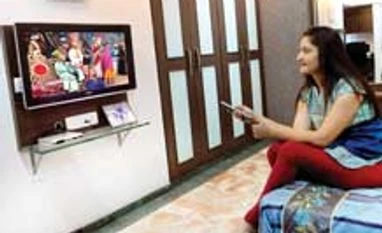Since most broadcasters had decided not to continue their subscription to television audience measurement (TAM), the industry was undergoing a ratings darkness period since April 1 where the old TAM software had been given up, and the new BARC ratings software was yet to be installed.
All that, however, will change now, as the new ratings will be rolled out. The broadcasters had a feel of these ratings a couple of weeks ago when BARC made a presentation to share household level data. While there were no major changes, channel ranking across genres, gaps between channels have widened or narrowed, said sources present at one such presentation.
More From This Section
The initial rollout of the new ratings will include a sample size of 12,000 people-meters, and will cover the towns and cities with a population of 1,00,000 or more. While this is less than what BARC had claimed to launch with (the joint industry body had maintained it will have 20,000 reporting meters at launch), Partho Dasgupta, CEO, BARC India, reiterates that the sample size is just fine.
“Globally, such a system takes more than three years to set up with about 6,000 household sample. We are rolling out the first service of 1,00,000-plus households this month. We actually have much more thousands of meters seeded but the 1 lakh plus market needs only 12,000 sample households. The sample individual data needs to stabilise and that’s what we are ensuring. All this has happened in just about 20 months. The next phase will see us releasing the sub 1-lakh urban and rural numbers as well as individuals, which should be in three to six months,” he says.
Dasgupta adds that while they have more meters installed but, 1 lakh-plus market pan-India requires 12,000 households to be measured. TAM currently has 12,200 meters (measuring close to 40,000 people) in place in around 225 town and cities. However, both the systems currently do not have any presence in the rural areas. While TAM is present in some semi-urban towns, BARC expects to include the rural territories over the next six months.
| WHAT’S ON THE TABLE |
|
Top media agency sources say most agencies, including those from GroupM, Publicis Groupe, IPG and Omnicom, have discontinued subscribing to TAM from April 1 in keeping with a directive issued by the Advertising Agencies Association of India (AAAI) last month. Most broadcasters too have discontinued their subscription to TAM since the start of the month. This implies TAM has no market now for TV viewership data, its key source of revenue. BARC software is being uploaded into agency systems for planners and media buyers to begin work from April 29, the day of launch.
Ashish Bhasin, chairman and CEO South Asia, Dentsu Aegis Network, says, “Everybody is on one page — from advertisers to broadcasters to agencies — on using BARC. This is an industry initiative and something that is intended to benefit stakeholders concerned. I don’t think advertisers have issues with this in any way since they too are represented on the BARC body.”
The industry is also ready to wait. “Individual level data will be given in the next two to three weeks, which is something we are comfortable with,” a senior media planner said.
BARC will begin giving household level data, which is expected to stabilise in the next few months. TAM, on the other hand, could focus its attention on its radio and advertising monitoring services and could likely hike their subscription fees there, say sources. They could also begin monitoring newer media such as outdoor, agency sources said, in a bid to stay relevant.
Post-April 1, when the industry was supposed to have a ratings dark period, TAM began releasing television viewership data to select media, a practice it had discontinued around three and a half years back. Those in the know reveal that TAM India had stopped issuing data to the broadcaster resistance. However, now that TAM is no longer under that pressure, it has once again started releasing data at a macro (genre) or event level (for example Indian Premier League). BARC too, Dasgupta says, will release data to the media when requested, provided the queries are not too exhaustive.
)